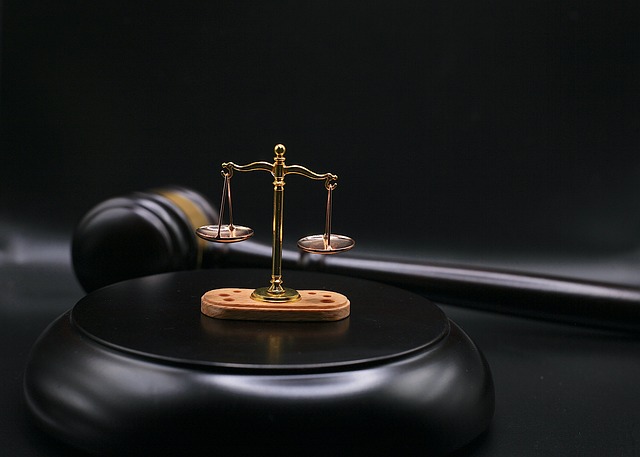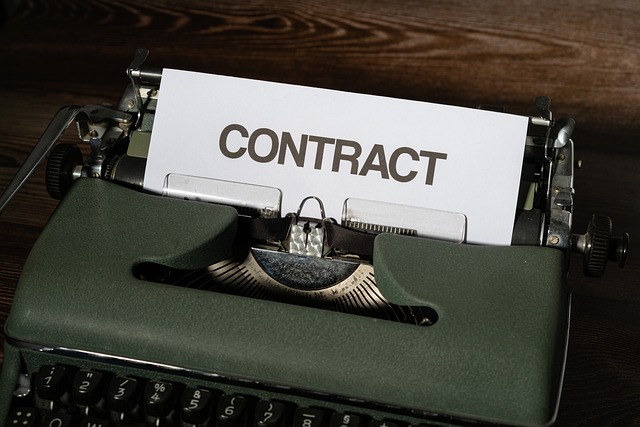A lawyer's expertise is essential for legal protection and interest safeguarding in any transaction or partnership. They specialize in drafting clear, precise contracts that outline roles, responsibilities, and obligations to prevent future misunderstandings or disputes. These contracts are legally binding and must comply with complex statutory and common law frameworks such as the Uniform Commercial Code (UCC) in the U.S. A specialized contract lawyer is crucial for ensuring compliance with relevant statutes and case law, thus avoiding legal pitfalls. In the event of a dispute, these contracts are scrutinized in litigation, where a skilled lawyer's knowledge of contract law becomes paramount to ensure the terms are valid and enforceable. The courtroom process demands a deep understanding of jurisprudence, and a lawyer's role extends beyond advocacy to include strategic planning and representation. Engaging a lawyer is not just a legal requirement but a strategic investment for anyone entering into or involved in contractual agreements, as it ensures that the terms are well-protected and that any potential disputes can be resolved effectively.
Navigating the complexities of legal agreements can be daunting. Ensuring your interests are safeguarded in a contract is paramount, and this article provides comprehensive guidance on how to achieve that. Understanding the role of a lawyer in drafting contracts, familiarizing oneself with the legal framework governing such documents, preparing for potential disputes in the courtroom, and identifying critical elements and clauses to include are all essential steps. By leveraging expert legal advice and knowledge, you can protect your rights effectively and navigate contractual agreements with confidence.
- Understanding the Role of a Lawyer in Drafting Contracts
- The Legal Framework Governing Contracts: What You Need to Know
- Navigating the Courtroom: When Contracts Become Contentious
- Key Elements and Clauses to Include in Your Contract for Protection
Understanding the Role of a Lawyer in Drafting Contracts

When engaging in any transaction or partnership, enlisting a lawyer to draft contracts is an indispensable step to protect your interests within the legal framework. A lawyer’s expertise ensures that the language used in a contract is precise and unambiguous, minimizing the potential for misunderstandings or conflicts down the line. Their role is critical as they navigate the complexities of the law, crafting clauses that are both enforceable in court and reflective of your rights and obligations. In the event of a dispute, these meticulously prepared documents serve as the foundation for legal proceedings, often preventing costly litigation by clearly outlining each party’s responsibilities. The lawyer’s skill in translating your needs into a binding contract is a safeguard against the unpredictability of business dealings and provides a clear path should the matter escalate to a courtroom setting.
The Legal Framework Governing Contracts: What You Need to Know

When entering into a contract, it is imperative to understand the legal framework that governs such agreements. This framework is rooted in statutory law and common law, as defined by each jurisdiction’s legal system. A lawyer specializing in contract law will navigate these complexities, ensuring your contract adheres to the specific requirements set forth by the relevant legislation. In the United States, for instance, the Uniform Commercial Code (UCC) provides a comprehensive set of rules that govern commercial transactions, while the common law tradition offers a body of case law and legal principles developed over time by courts and judges. This intricate web of laws is designed to protect the interests of all parties involved, providing clarity and predictability in legal outcomes. Understanding these provisions and their implications is crucial for anyone looking to draft or enter into a contract, as failure to comply can lead to disputes and potential litigation in a courtroom, where the enforceability of your agreement will be tested against this legal backdrop.
Navigating the Courtroom: When Contracts Become Contentious

In the event that a contract dispute arises and escalates to litigation, navigating the courtroom becomes a complex endeavor. Here, the expertise of a seasoned lawyer is invaluable. They are adept at interpreting the law as it applies to contractual agreements, ensuring their clients’ interests are represented effectively. A lawyer’s proficiency in contract law is crucial when maneuvering through legal proceedings, as they must argue the nuances of the agreement in question, often dissecting every clause and term to uphold their client’s rights or obligations under the law. The courtroom setting demands a high level of legal knowledge and strategic thinking, making it imperative for individuals facing such disputes to seek counsel from a lawyer who specializes in contract law to navigate these turbulent waters successfully.
The judicial process can be daunting, with its own language and procedures that are foreign to those outside the legal field. Within this framework, contracts become the central focus, under intense scrutiny by judges and opposing counsels. The courtroom is where the validity and enforceability of a contract are tested, often hinging on the clarity and precision of its drafting. A lawyer’s role here is not only to advocate for their client but also to ensure that the contract stands up under legal scrutiny, reflecting the true intentions of all parties involved at the time of its creation. The outcome of such disputes can have far-reaching implications, underscoring the importance of both clear contract drafting and skilled legal representation in the courtroom.
Key Elements and Clauses to Include in Your Contract for Protection

When drafting a contract to protect your interests, it is imperative to include several key elements and clauses that a skilled lawyer can help articulate. The foundation of any robust contract lies in its ability to clearly define the roles, responsibilities, and obligations of each party involved. This clarity minimizes misunderstandings and sets forth a clear framework for all parties to operate within. A well-crafted contract should also outline the terms of the agreement with precision, including the scope of work, deliverables, deadlines, and performance metrics. Furthermore, it is crucial to establish remedies and penalties for non-compliance or breach of contract, ensuring that there are legal recourse options available in a courtroom setting should the need arise. This includes stipulating liquidated damages or other forms of compensation for any party if the contract terms are violated, as determined by law.
In addition to outlining the obligations and consequences, it is essential to include a dispute resolution clause within your contract. Such a provision lays out the agreed-upon procedures for resolving conflicts, which can save time and resources by avoiding a lengthy courtroom process. It may specify the choice of law to govern the contract, the jurisdiction in which any legal proceedings must take place, and the methods of alternative dispute resolution, such as arbitration or mediation. By incorporating these elements and clauses, your contract becomes a comprehensive tool for safeguarding your interests, ensuring that should any legal action be necessary, you have laid a strong foundation with the guidance of legal expertise.
In conclusion, safeguarding your interests through expertly drafted contracts is a cornerstone of successful business operations and personal dealings. The intricate legal framework governing contracts demands a professional’s expertise to navigate effectively, which a skilled lawyer can provide. By understanding the pivotal role a lawyer plays in contract creation and by being aware of the legal landscape, individuals and entities can ensure their agreements are robust and enforceable. Should disputes arise, the courtroom setting becomes a forum where these contracts may be tested. It is imperative to have clear, precise language within your contract to facilitate smoother resolution processes if contentious issues emerge. With the right legal guidance and carefully considered clauses that protect your rights, you can approach any transaction with confidence, knowing that your interests are legally fortified.
